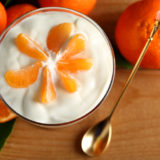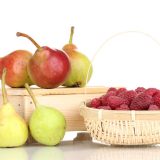The pomegranate, a notoriously fun and messy autumn fruit, could be one of the most valuable additions to your grocery basket. The known benefits of pomegranate juice have surpassed other healthful juices, taking the coveted top spot of foods that fight heart disease. The evidence is so compelling that regular pomegranate juice consumption has the potential to knock heart disease off its ranking as the number one cause of death in the U.S.
Heart Disease
Many modern lifestyle habits contribute to the high prevalence of heart disease by causing high cholesterol or high blood pressure. Some of the habits known to encourage elevated cholesterol or blood pressure include:
- Diets high in saturated fat and low in fiber
- Cigarette smoking
- Alcohol use
- Inactivity
- Stress
These lifestyle factors encourage plaques (a combination of fat, cholesterol, cellular waste, calcium and fibrin) to form, grow and adhere to blood vessels, therefore increasing the risk for heart disease and stroke. Known as atherosclerosis, the narrowing of blood vessels due to plaque buildup is a major culprit of American’s high rate of heart disease. As blood vessels narrow, it takes more effort from the heart to pump blood throughout the body – eventually leading to high blood pressure.
Pomegranate Juice
Through a collaborated effort, researchers around the globe have discovered that pomegranate juice improves the outlook of cardiovascular health. By reducing atherosclerosis and aiding the flexibility of blood vessel walls, this antioxidant-rich juice has potential to reverse the dangers of heart disease.
- Reduces wall damage – The researchers tested the effects of pomegranate juice on samples of human cells that line blood vessels. After exposing the cells to excessive physical stress simulating high blood pressure, the cells treated with pomegranate juice incurred less damage than those without the juice. The tests showed that pomegranate juice reduced the effects of stress on human blood vessel cells by stimulating the production of nitric oxide, a chemical helping to keep arteries open and blood flowing.
- Slows plaque buildup – Research performed on mice demonstrated that pomegranate juice slowed hardening of the arteries resulting from high cholesterol by 30 percent. Researchers concluded the beneficial effects of pomegranate juice on hardening of the arteries are likely due to its high antioxidant content. The antioxidant levels found in pomegranate juice surpassed those found in other fruit juices, such as blueberry, cranberry, orange and red wine.
Through its actions in reducing plaque accumulation on artery walls and producing nitric oxide to relax blood vessels, pomegranate juice holds enormous promise for circumventing heart disease. While the age old rhyme for avoiding the doctor involves eating apples, it may be replaced by the newer verse, “a pomegranate a day keeps the cardiologist away.”




